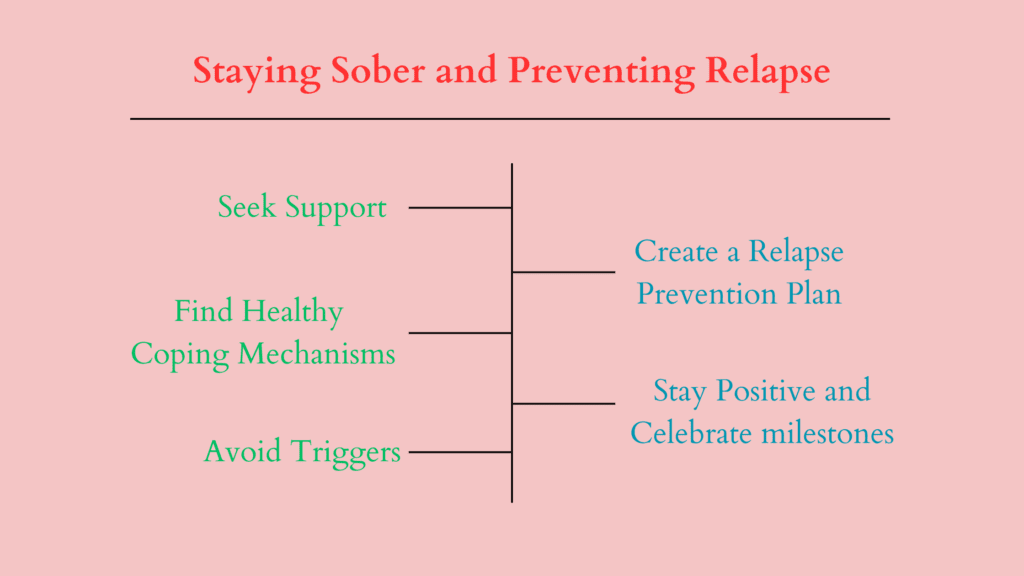In addiction recovery care, the power of accountability cannot be underestimated. The journey to recovery is a challenging one, filled with ups and downs. However, taking responsibility for one’s actions and commitments is key to achieving lasting sobriety. This article explores the significance of accountability in addiction recovery and why it should be a cornerstone of any treatment program.
Accountability in addiction recovery care refers to the concept of being answerable for one’s choices and actions. It involves acknowledging the consequences of drug or alcohol use and taking steps to rectify past mistakes. By holding oneself accountable, individuals can regain control over their lives and make the necessary changes to maintain sobriety. Incorporating accountability into a treatment program can provide numerous benefits for those in recovery. It fosters self-awareness, encourages personal growth, and helps individuals develop healthy coping mechanisms.
Moreover, accountability promotes a sense of ownership and empowers individuals to take charge of their recovery journey. Throughout this article, we will explore various strategies and techniques to promote accountability in addiction recovery.
Whether you’re exploring treatment options or supporting a loved one, understanding the power of accountability is crucial for successful and long-lasting recovery.
The Importance of Taking Responsibility in Addiction Recovery Care
For anyone fighting addiction, the journey toward recovery is challenging and multifaceted. Yet, amidst the diverse therapies and support systems, one element stands out as the cornerstone of lasting change: taking responsibility.
Why is taking responsibility so critical? Imagine someone struggling with alcohol dependence. Attributing their actions solely to “the disease” or blaming external factors like stress or bad relationships creates a dangerous illusion of powerlessness. This mindset hinders the crucial steps needed for recovery:
- Self-awareness: Accepting responsibility forces you to honestly confront your triggers, patterns, and choices. This self-awareness becomes the foundation for meaningful change.
- Empowerment: Blaming external factors leaves you feeling like a victim. Accepting responsibility shifts the focus to your power to choose differently, fostering motivation and control.
- Ownership: Recovery is a personal journey. By owning your role in your addiction, you become an active participant in your healing, rather than a passive recipient of treatment.
- Accountability: When you take responsibility, you’re more likely to be accountable for your actions and decisions. This fosters personal integrity and strengthens your commitment to recovery.
- Healthy relationships: Blaming others creates distance and resentment. Taking responsibility allows you to rebuild trust and honesty in your relationships, crucial for lasting support.
The path to accepting responsibility isn’t always easy. It requires introspection, courage, and the willingness to forgive yourself for past mistakes. But remember, it’s not about self-punishment; it’s about claiming your power and embracing the possibility of change.
How Does Accountability Help in Addiction Recovery Care?
Accountability plays a crucial role in promoting personal growth and self-awareness in addiction recovery care. Here’s how:
- Taking Ownership: When individuals hold themselves accountable for their actions and decisions, they take ownership of their recovery journey. This mindset shift empowers them to actively engage in their treatment and make positive changes.
- Encouraging Responsibility: By holding individuals accountable for their behaviors and commitments, addiction recovery programs promote responsibility. This fosters a sense of agency and encourages individuals to make healthier choices in their daily lives.
- Building Trust: Accountability within a supportive community or treatment environment helps individuals rebuild trust in themselves and others. When they see that others are holding them accountable in a non-judgmental way, it reinforces the belief that they are worthy of support and capable of change.
- Facilitating Reflection: Regular check-ins and accountability sessions provide opportunities for reflection and self-assessment. Individuals can evaluate their progress, identify areas for improvement, and celebrate their successes along the way.
- Preventing Relapse: Accountability structures, such as regular meetings or check-ins with sponsors or support groups, act as safeguards against relapse. Knowing that they will be held accountable for their actions motivates individuals to stay committed to their recovery goals.
Overall, accountability promotes personal growth and self-awareness by empowering individuals to take control of their recovery journey, fostering responsibility and trust, facilitating reflection, and helping prevent relapse.
Setting Realistic Goals and Tracking Progress in Addiction Recovery
The road to recovery from addiction is paved with good intentions, but without realistic goals and consistent progress tracking, even the strongest intentions can falter. These two powerful tools work hand-in-hand to empower you, boost your motivation, and keep you moving forward on your journey.
How Your Support System Can Help You Achieve Recovery Goals?
Setting Realistic Goals:
- SMART Goals: Make your goals Specific, Measurable, Achievable, Relevant, and Time-bound. “Exercise more” is vague, while “Walk for 30 minutes 3 times a week” is SMART.
- Start Small: Don’t overwhelm yourself with ambitious goals too soon. Celebrate small victories and gradually increase the challenge as you progress.
- Consider Your Support System: Involve your therapist, sponsor, or support group in setting goals. Their guidance and accountability can be invaluable.
- Focus on Both Process and Outcome: Set goals that address specific behaviors (e.g., attending support groups) and desired outcomes (e.g., improved relationships).
Tracking Progress:
- Choose a Method You Enjoy: Journals, apps, progress charts, or even simple calendar markings can work wonders. Find a method that resonates with you.
- Track Consistently: Regular tracking, even daily, allows you to identify patterns, celebrate wins, and course-correct when needed.
- Focus on Positives: Celebrate small milestones and improvements, not just setbacks. Positive reinforcement keeps you motivated.
- Seek Support: Share your progress with your support system and ask for feedback. Sharing keeps you accountable and fosters encouragement.
Remember:
- Setbacks are Inevitable: Don’t let them derail your progress. View them as learning opportunities and get back on track.
- Adjust Your Goals: As you progress, your needs and goals will change. Adapt them accordingly to stay challenged and motivated.
- Reward Yourself: Celebrate your achievements big and small. Positive reinforcement strengthens your commitment to recovery.
By setting realistic goals and tracking your progress, you become an active participant in your recovery journey. You gain a sense of control, boost your motivation, and witness your progress firsthand. This empowers you to navigate challenges, celebrate victories, and ultimately achieve lasting recovery.
Remember, you are not alone in this journey. Seek support, utilize these tools, and believe in your ability to heal and thrive.
Overcoming Challenges and Staying Accountable During Relapse
Relapses during addiction recovery are unfortunately common, but they don’t have to define your journey. With the right mindset and tools, you can learn from setbacks, overcome challenges, and stay accountable to your recovery goals.

Understanding Relapses
- Acknowledge & Don’t Shame: Blaming yourself won’t help. Accept the relapse, analyze what triggered it, and use it as a learning opportunity.
- Identify Triggers: Understand your emotional states, situations, or people that might have triggered the relapse. Develop coping mechanisms to address them.
- Seek Support: Don’t isolate yourself. Reach out to your therapist, sponsor, or support group for guidance and understanding.
Overcoming Challenges
- Address Underlying Issues: Relapses are often symptoms of deeper unresolved issues. Therapy can help address these issues and strengthen your coping mechanisms.
- Practice Self-Care: Prioritize healthy habits like sleep, exercise, and relaxation techniques to manage stress and maintain emotional well-being.
- Develop Coping Mechanisms: Identify healthy alternatives to addictive behaviors. Use mindfulness practices, journaling, or creative outlets to manage cravings and difficult emotions.
Staying Accountable
- Review Your Goals: Reflect on your recovery goals and assess if they need adjustments based on your experience with relapse.
- Rebuild Trust: If you break promises to yourself or others, acknowledge it and take steps to rebuild trust through honest communication and accountability.
- Strengthen Your Support System: Reconnect with your support group, therapist, or sponsor. Engage in activities that promote accountability and strengthen your commitment to recovery.
Relapses can be challenging, but they don’t have to derail your recovery journey. By understanding the reasons behind them, learning from your experiences, and utilizing the right tools and support, you can overcome challenges, stay accountable, and emerge stronger in your commitment to a healthier future.
The Role of Accountability in Long-Term Sobriety and Relapse Prevention
The role of accountability in long-term sobriety and relapse prevention is paramount. Here’s why:
- Maintaining Focus: Accountability keeps individuals focused on their recovery goals by providing a constant reminder of their commitment to sobriety. Knowing that they are answerable to someone else helps them stay on track, even when faced with temptation. This is where sobriety accountability plays a vital role, ensuring individuals remain dedicated to their journey.
- Building Support Systems: Being held accountable encourages individuals to surround themselves with a strong support network. Whether it’s through regular check-ins with a sponsor, attending support group meetings, or engaging with a therapist, sobriety accountability fosters connections with others who understand the challenges of recovery.
- Identifying Triggers: Accountability helps individuals recognize and address triggers that may lead to relapse. Through honest discussions with their support system, individuals can identify patterns of behavior or situations that put their sobriety at risk, allowing them to develop strategies to avoid or cope with these triggers effectively. Incorporating sobriety accountability into these discussions ensures proactive and continuous growth.
- Encouraging Honesty and Transparency: Being accountable encourages individuals to be honest and transparent about their struggles and successes in recovery. This openness fosters trust within their support network and creates an environment where individuals feel safe to seek help when needed. Sobriety accountability strengthens this process by reinforcing the value of honesty and building deeper trust.
- Providing Encouragement and Motivation: Accountability offers encouragement and motivation during both the highs and lows of recovery. Knowing that someone is cheering them on and celebrating their progress can be incredibly motivating, while also providing support and guidance during challenging times. Sobriety accountability ensures that individuals receive consistent encouragement, making them feel valued and supported throughout their journey.
In essence, accountability serves as a cornerstone of long-term sobriety by helping individuals stay focused on their goals, build strong support systems, identify triggers, foster honesty and transparency, and find encouragement and motivation along the way. By embracing accountability, individuals can significantly reduce their risk of relapse and increase their chances of maintaining lasting sobriety.
Conclusion: Embracing accountability as a lifelong commitment in addiction recovery
In conclusion, embracing accountability as a lifelong commitment in addiction recovery care is essential for maintaining sobriety and preventing relapse. Accountability provides a framework for individuals to stay focused on their recovery goals, build strong support systems, identify and address triggers, foster honesty and transparency, and find encouragement and motivation throughout their journey.
By holding themselves accountable and surrounding themselves with a supportive network of peers, sponsors, therapists, and loved ones, individuals can navigate the challenges of recovery with resilience and determination. Ultimately, accountability empowers individuals to take ownership of their sobriety, cultivate positive habits, and live fulfilling lives free from the grip of addiction.
For further information and support on your journey to recovery, feel free to contact us at CFC Recovery. We’re here to help you every step of the way.



